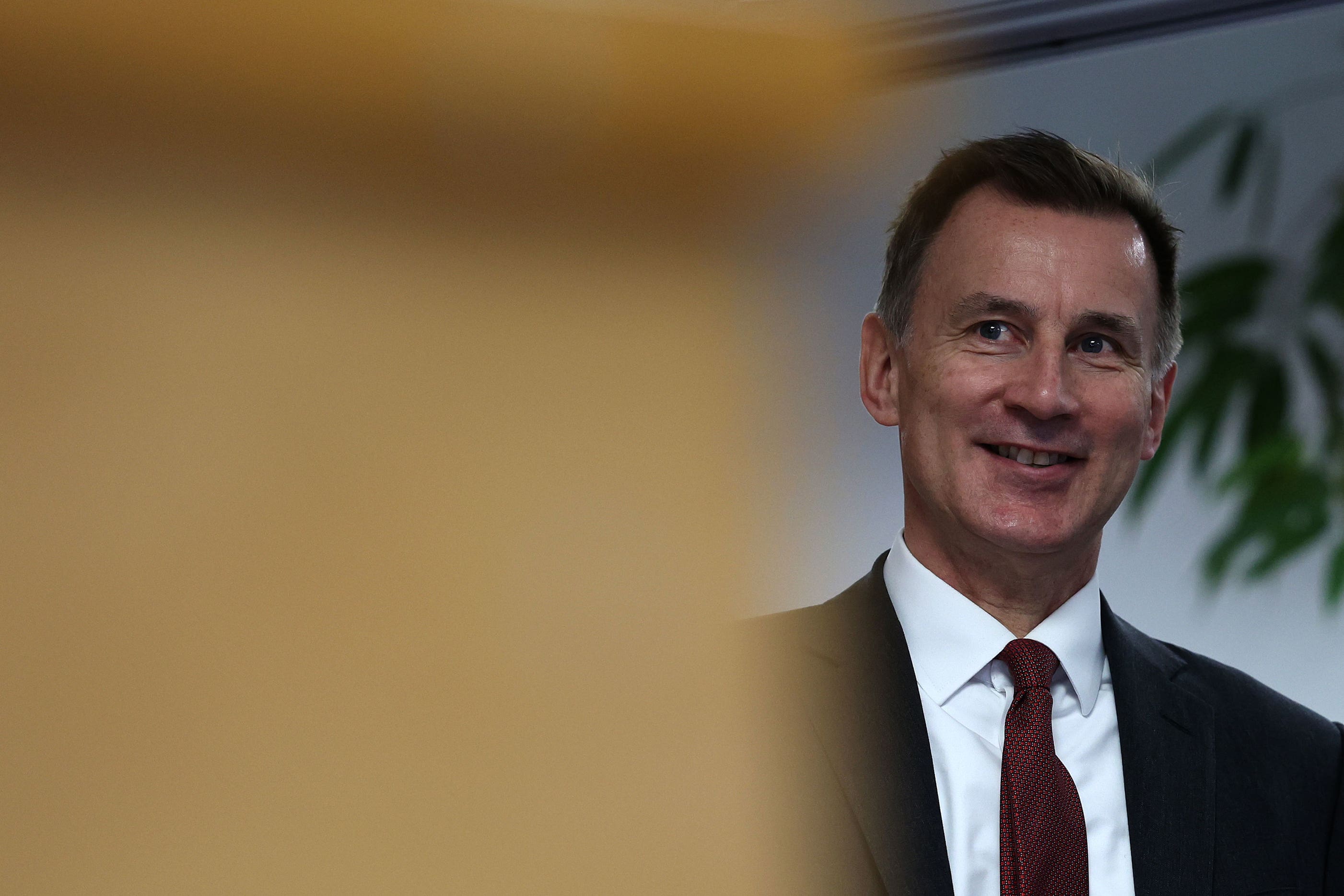IMF warns Chancellor to avoid further tax cuts
The body’s chief economist said: ‘We would advise against further discretionary tax cuts as envisioned and discussed now.’

Your support helps us to tell the story
From reproductive rights to climate change to Big Tech, The Independent is on the ground when the story is developing. Whether it's investigating the financials of Elon Musk's pro-Trump PAC or producing our latest documentary, 'The A Word', which shines a light on the American women fighting for reproductive rights, we know how important it is to parse out the facts from the messaging.
At such a critical moment in US history, we need reporters on the ground. Your donation allows us to keep sending journalists to speak to both sides of the story.
The Independent is trusted by Americans across the entire political spectrum. And unlike many other quality news outlets, we choose not to lock Americans out of our reporting and analysis with paywalls. We believe quality journalism should be available to everyone, paid for by those who can afford it.
Your support makes all the difference.Chancellor Jeremy Hunt could risk the Government’s ability to invest money in the NHS and other vital services if he cuts taxes further, the International Monetary Fund has said.
IMF chief economist Pierre-Olivier Gourinchas said on Tuesday that the UK will see extra pressures to spend money on social care, education and healthcare.
“There is a need to put in place medium-term fiscal plans that will accommodate a very significant increase in spending pressures,” he told a press conference.
“In the case of the UK, you might think of spending on healthcare and modernising the NHS; spending on social care; on education; you might think about critical public investment to address the climate transition; but also to boost growth.”
We would advise against further discretionary tax cuts as envisioned and discussed now
He said that to meet these commitments the Government will have to balance its tax gains with its spending to ensure that debt does not get out of control.
“In that context we would advise against further discretionary tax cuts as envisioned and discussed now,” Mr Gourinchas said.
Mr Hunt cut national insurance at the autumn statement last year, a move the Office for Budget Responsibility thinks will cost the Treasury around £9.76 billion in the 2028 tax year.
But ahead of a likely election later this year, Mr Hunt appears keen to cut taxes even further if he can.
Economists have said the fact that the Government borrowed less than expected in December might give the Chancellor the cover he needs to slash taxes further in the Budget on March 6.
Yet December’s figures from the Office for National Statistics said debt levels are higher than they have been since the 1960s when compared with the size of the economy.
It is too early to know whether further reductions in tax will be affordable in the Budget, but we continue to believe that smart tax reductions can make a big difference in boosting growth
On Tuesday, Mr Hunt said: “It is too early to know whether further reductions in tax will be affordable in the Budget, but we continue to believe that smart tax reductions can make a big difference in boosting growth.”
Mr Gourinchas’s warning came after the IMF downgraded the UK’s growth forecast for next year. The body’s economists expect UK growth to hit 0.6% this year, and 1.6% next.
It would make the economy the second-worst performer in the G7 this year and the joint third-worst performer in 2025.
The IMF’s forecast for this year is unchanged since its last report in October, but has been downgraded by 0.4 percentage points for next year.
But the IMF said that change is largely due to a revision to official data, rather than a worsening economic situation.
In September, the Office for National Statistics (ONS) said that between 2019 and the end of 2021 the size of the economy rose 0.6%, according to its revised figures. It had previously estimated a 1.2% contraction in the same period.
The IMF said: “The markdown to growth in 2025 of 0.4 percentage points reflects reduced scope for growth to catch up in light of recent upward statistical revisions to the level of output through the pandemic period.”
It said the UK economy will grow slightly faster this year than it did last as the negative effects of high energy prices wane.
Next year growth will speed up as inflation drops, which allows people’s real incomes to recover.
The global economy is expected to grow by 3.1% this year and 3.2% next year.
That is below the 3.8% average between 2000 and 2019, but is 0.2 percentage points higher than the IMF’s previous forecast in October.
The upgrade is thanks to the US economy appearing more resilient than expected, and the Chinese government rolling out fiscal support, the IMF said.
It warned that continued attacks in the Red Sea could send new shocks through the global economy.
“Container shipping costs have already sharply increased, and the situation in the Middle East remains volatile,” it said.
“Further geo-economic fragmentation could also constrain the cross-border flow of commodities, causing additional price volatility.”
Shadow chief secretary Darren Jones said: “This is yet more evidence of 14 years of Conservative economic failure.
“The Tories have left Britain with high debt, flatlining growth, high taxes and working people worse off.
“It’s time for change. We need an election now to give the British public the chance to vote for a changed Labour Party that will change Britain for the better.”